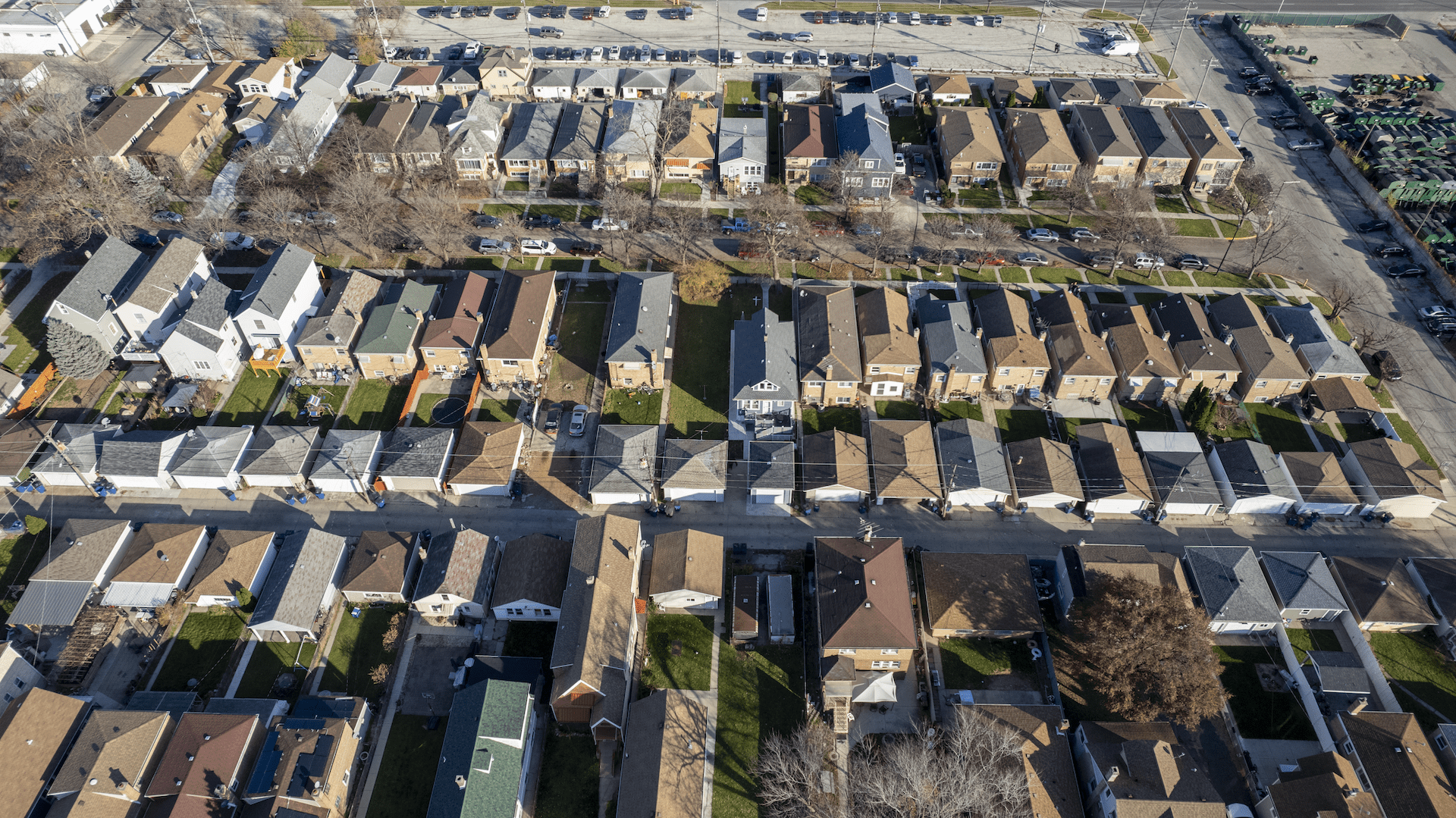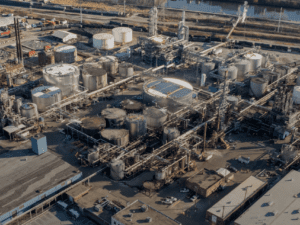 Jesús J. Montero, del Cicero Independiente
Jesús J. Montero, del Cicero IndependienteEn la última década, la planta de alquitrán de hulla de Koppers, situada en la frontera entre la ciudad de Cicero y el pueblo de Stickney, ha sido señalada por más de 50 infracciones de la legislación medioambiental estatal.
¿Qué es Koppers?
Koppers es una planta química situada en el lado sur de Pershing Road, en la frontera entre Cicero y Stickney. La planta se inauguró en 1922 y lleva más de 100 años funcionando en Cicero. Convierte los residuos de alquitrán crudo procedentes de la producción de acero y el refinado de petróleo en alquitrán refinado, aceites químicos y creosota, un líquido amarillo y pegajoso que suele utilizarse como conservante para tratar la madera contra termitas, hongos y otras plagas.
Durante décadas, los vecinos han luchado contra la planta por la contaminación atmosférica que emite.
¿Qué sustancias químicas libera la planta al aire y son nocivas?
Koppers emite varios tipos de lo que se conoce como "compuestos orgánicos volátiles", o gases peligrosos que pueden causar problemas de salud a corto plazo y crónicos. Koppers contamina más que ningún otro lugar del condado de Cook dos tipos de estos gases: naftalina y benceno.
El naftaleno, un producto químico utilizado en pesticidas, puede provocar dolores de cabeza y mareos.. La EPA clasifica el naftaleno como sustancia química posiblemente cancerígena. Sin embargo, el estado de California ha clasificado la naftalina como una sustancia de la que se sabe que causa cáncer desde 2002.
El benceno, por su parte, es uno de los carcinógenos más utilizados y peligrosos en EE.UU. Reconocible por su dulce aroma en las gasolinerasEl benceno está muy extendido investigadocon vínculos con la leucemia y otros cánceres de la sangre.
¿Están autorizadas legalmente a liberar sustancias químicas que pueden provocar cáncer u otros problemas de salud?
Las leyes medioambientales federales y estatales no impiden que los contaminadores emitan al aire sustancias químicas que causan cáncer u otros problemas de salud. En cambio, estas leyes ponen un límite a la cantidad de esos contaminantes que pueden liberarse.
Los expertos afirman que los niveles de contaminación que fija la EPA de Illinois no protegen necesariamente a todos los habitantes de una comunidad determinada. En recientes infracciones, Koppers también ha sido acusada por la EPA de Illinois de sobrepasar los límites de contaminación permitidos.
¿Qué hace el Gobierno para ayudar?
La EPA de Illinois ha emitido más de 50 infracciones contra Koppers desde el año 2000, intentando corregir los problemas medioambientales de la planta. En 2021 y 2022, la EPA de Illinois remitió el caso a la oficina del fiscal general de Illinois, pidiéndole que emprendiera acciones legales.
Los fiscales del Estado podrían imponer sanciones económicas, presentar una demanda contra Koppers o incluso cerrar temporal o permanentemente la planta.
No está claro qué están haciendo los funcionarios locales, si es que están haciendo algo.
Funcionarios de la ciudad de Cicero y el pueblo de Stickney no respondieron a múltiples solicitudes de comentarios de Cicero Independiente y MuckRock. Después de MuckRock y el Independiente publicó su primera investigación sobre Koppers en diciembre, la empresa contrató a una empresa de comunicación de crisis para que se reuniera con los cargos electos locales, respondiera a las preguntas sobre la historia y creara un grupo consultivo comunitario para hacer frente a las consecuencias.
Pero no se ha hecho público nada sobre estas reuniones o el panel comunitario.
¿Qué puedo hacer para reducir mi exposición a contaminantes nocivos y enterarme de lo que ocurre en Koppers?
Si percibe malos olores en el exterior y vive cerca de la planta de Koppers, lo más seguro que puede hacer es entrar en casa y cerrar las ventanas, dicen los expertos. También puede presentar una denuncia por contaminación a la EPA de Illinois en línea. Si cree que se trata de una emergencia, llame a la Agencia de Gestión de Emergencias de Illinois al 800-782-7860.
Para estar al día de las infracciones y asuntos de Koppers, puedes seguir el boletín de Muckrock o Cicero Independiente a través de Instagram @ciceroindependiente.


